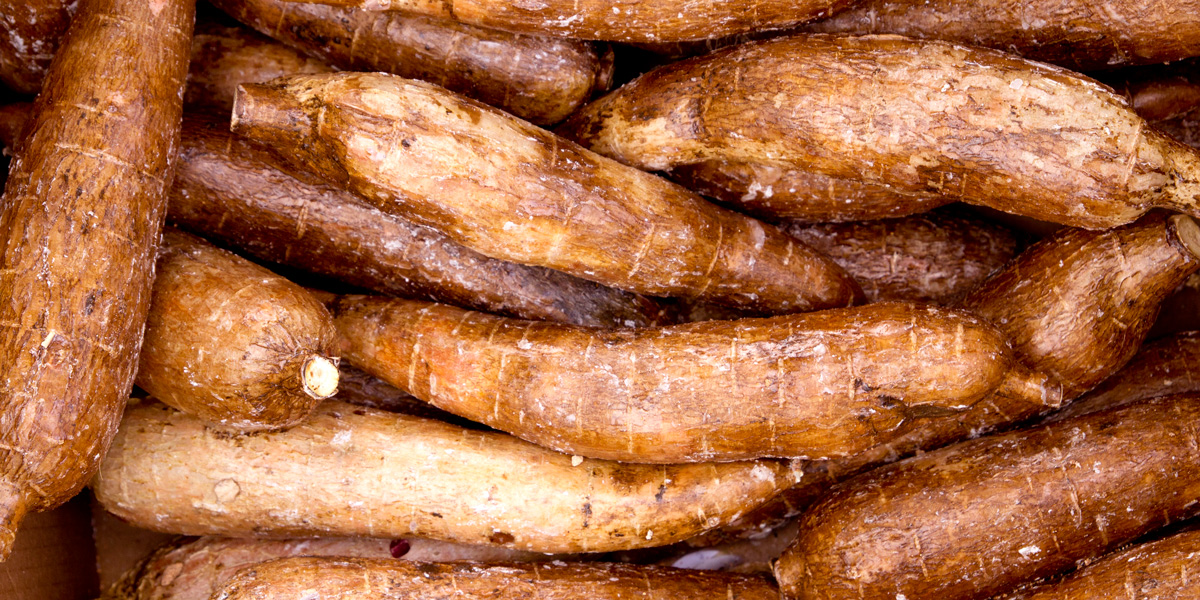
Attempts to genetically engineer CRISPR'd plants to fight off viruses resulted in the propagation of mutated viruses
Attempts to genetically engineer cassava plants to fight off viruses using the CRISPR gene editing tool resulted in the propagation of mutated viruses in controlled laboratory conditions, according to newly published research. The research was conducted by plant biologists at the University of Alberta, the University of Liège in Belgium and ETH Zurich, part of the Swiss Federal Institute of Technology. The Phys.org article below reports on the study.
In reality, this is not a new story. GMWatch reported on the failure of the GM supposedly virus-resistant cassava back in May 2018.
The news of this GMO fail first broke in a Twitter exchange. GMO promoter Kevin Folta had tweeted, “Ugandan biotech cassava field trials show another success in virus resistance, protecting a crop that feeds >800 M.”
But ETH Zurich researcher Devang Mehta, who was working on the cassava project, tweeted in response, “Wouldn’t advert this a lot. The transgenic broke existing nat. resistance to diff. more widespread virus. My lab’s working on this tho.”
Mehta appeared to be saying that the genetic engineering process had destroyed the plants’ natural resistance to a different, more widespread virus.
So yet another attempt to genetically modify cassava to overcome viral disease had failed – adding to a long list of previous failures of attempts to find a GMO solution to this problem.
Subsequently, as GMWatch reported, Mehta and his colleagues on the GMO cassava project posted a paper on the pre-publication website bioRxiv. The paper revealed that not only did the engineered CRISPR virus resistance completely fail but that it also led to the emergence of a novel mutant virus that, if it had escaped, might have put at risk the entire cassava crop.
Following this failure, Mehta penned an article announcing that he was leaving GMO research. Interestingly, he did not admit to the inherent problems of the technology, choosing instead to blame public “backlash and criticism” of GM.
Now Mehta and his colleagues have published their research in a peer-reviewed journal, Genome Biology.
It is to Mehta's credit that he is promoting his new publication by voicing caution about the risks of using CRISPR to engineer virus-resistant plants – see the Phys.org article below.
---
Gene-editing technology to create virus-resistant cassava plant has opposite effect, researchers find
Phys.org, 26 Apr 2019
https://phys.org/news/2019-04-gene-editing-technology-virus-resistant-cassava-effect.amp#referrer=https%3A%2F%2Fwww.google.com&_tf=From%20%251%24s
Using gene-editing technology to create virus-resistant cassava plants could have serious negative ramifications, according to new research by plant biologists at the University of Alberta, the University of Liège in Belgium and the Swiss Federal Institute of Technology.
Their research shows that attempts to genetically engineer the plants to fight off viruses resulted in the propagation of mutated viruses in controlled laboratory conditions.
"Because this technology creates a selection pressure on the viruses to evolve more quickly, and also provides the viruses a means to evolve, it resulted in a virus mutant that is resistant to our interventions," explained U of A post-doctoral fellow Devang Mehta.
The researchers used a new gene-editing technology called CRISPR-Cas9 in an attempt to design cassava plants that could cut the DNA of the mosaic virus and make the plants resistant to its damaging effects. They weren't successful and decided to sequence hundreds of viral genomes found in each plant to understand exactly what happened.
"We discovered that the pressure that CRISPR-Cas9 applied to the virus probably encouraged it to evolve in a way that increased resistance to intervention," said Mehta, who noted CRISPR-Cas9 has many other applications in food and agriculture that do not pose the same risks.
CRISPR-Cas9 is found in nature, where bacteria use it to defend against viruses. However, the researchers found the technology results in different outcomes in plants—and researchers are stressing the importance of screening against these sorts of unintended results in the future.
The cassava plant is a starchy root vegetable that is consumed for food throughout the tropics. Cassava is a primary staple crop grown in South America, Africa and Asia, from which a billion people get most of their calories each day. Each year, cassava crops are plagued by cassava mosaic disease, which causes 20 per cent crop loss. It is the mosaic disease that Mehta and his colleagues endeavoured to engineer against.
The research team is encouraging other scientists who are using CRISPR-Cas9 technology to engineer virus-resistant plants, to test their plants to detect similar viral mutations.
"We need to do more research on these types of applications of CRISPR-Cas9 technology before we proceed with field testing," said Mehta.
The study, "Linking CRISPR-Cas9 Interference in Cassava to the Evolution of Editing-Resistant Geminiviruses," was published in Genome Biology.
---
The new study:
Devang Mehta et al (2019). Linking CRISPR-Cas9 interference in cassava to the evolution of editing-resistant geminiviruses. Genome Biology. DOI: 10.1186/s13059-019-1678-3










